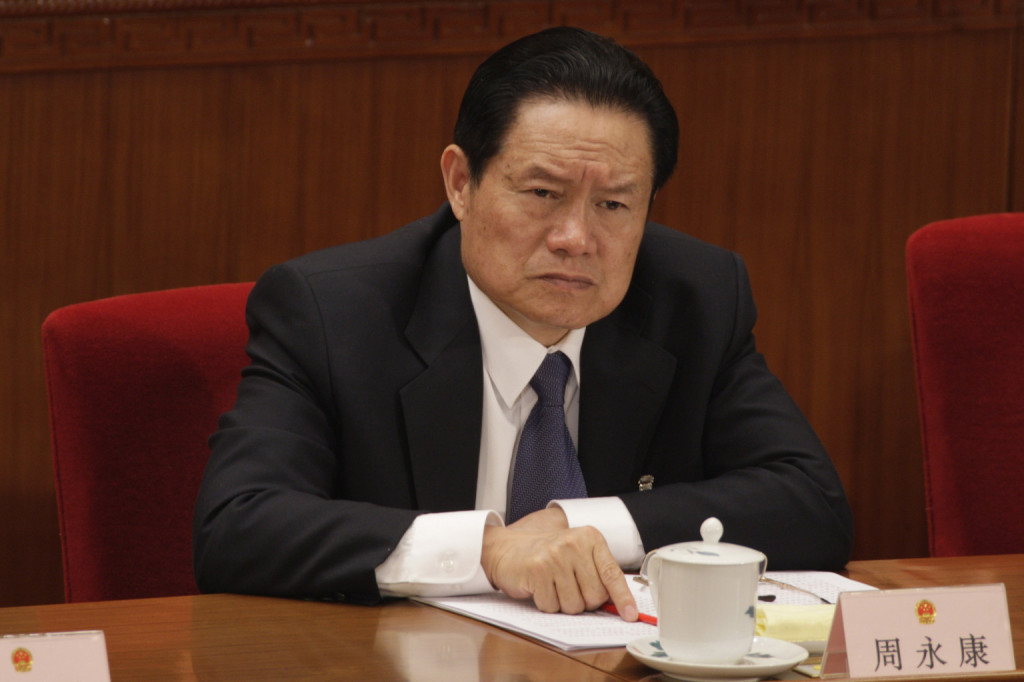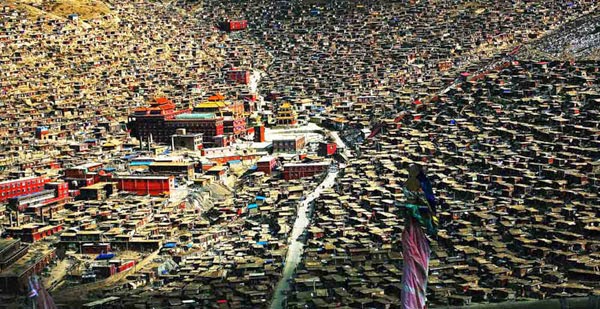Dharamsala, 6 December 2014: In a widely anticipated move, Zhou Yongkang, China’s most powerful domestic security chief who on his watch commanded a budget bigger than that of China’s armed forces, was late this week expelled from the Chinese Communist Party, put under arrest and his case referred to China’s justice department. Zhou’s fall from grace, approved by both former Presidents Jiang Zemin and Hu Jintao, has vastly strengthened President Xi Jinping’s rapid consolidation of power.
There are other observers who are much better informed of what all this means to China’s domestic politics and how this is played out in the country’s foreign policy ambitions. This writer would like to focus on how Zhou’s present fate sits with the Tibetans.
In December 1999, Zhou was made the party secretary of Sichuan province with a population of more than 80 million. In this appointment as the viceroy of more than 80 million souls, Zhou Yongkang was confronted with a charismatic Tibetan spiritual leader, Khenpo Jigme Phuntsok, who established and ran the sprawling and fast growing Serta Buddhist Academy of Larung Gar in Kham in eastern Tibet. Khenpo Jigme Phuntsok and his followers were responsible for the greatest revival of Tibetan Buddhism in our times. His academy attracted Tibetans throughout Tibet and students around China and beyond.
This concentration of manpower (more than 10,000 students), intellectual ferment and spiritual thirst and energy beyond the control of the Party did not sit well with Zhou Yongkang, the new party boss. He pressured the Khenpo to force his students to remove photographs of His Holiness the Dalai Lama from their private shrines, to denounce the Tibetan spiritual leader and reduce the ranks of his student body. The Khenpo refused. The Party moved in, in May 2001. Thousands of monks and nuns were expelled, after forcing them to denounce His Holiness the Dalai Lama. Demolition squads razed more than 1,875 dwellings to the ground. According to Wang Lixiong, China’s Tibet expert in his The End of Tibetan Buddhism, “On 1 July 2001, the authorities’ action came to a climax: more than 1,700 houses were knocked down on that single day. I heard from witnesses that, while noise and dust covered the scene, the loud crying of thousands of nuns seemed to have shook (sic) the earth.”
Zhou Yongkang, the provincial party chief, justified his action by saying, “The Dalai Lama attempts to split China. Most of his anti-China activities are underwritten with donations from Tibetan people. We need to stop there. We need to propagate atheism and advocate science so that they can give up their religion.” This quote of Zhou’s comes from the chapter, The Resilient Loser: China’s Security Chieffrom A Death In Lucky Holiday Hotel: Murder, Money and an Epic Struggle for Power in China by Pin Ho and Wenguang Huang.
Meanwhile the star of the demolished Serta Buddhist Academy has risen. The academy has a bigger student body than before from across Asia. Its existence is not only tolerated but celebrated by China’s state media. Completely out of sync with Zhou Yongkang’s uncompromising anti-Tibetan Buddhism screed, these days, official state media say, the Serta Buddhist Academy is where students come to attain “the rainbow body,” the state of perfect liberation from suffering. China’s Tibet website in its celebratory applause of the existence and even the achievement of the Serta Buddhist Academy says of its founder, “Jigme Phuntsok Rinpoche, the incarnation of the great terton Terchen Lerab Lingpa, and also a teacher of the Thirteenth Dalai Lama, established the Larung Gar Five Sciences Buddhist Academy in Larung Valley near Serthar, Sichuan Province, southwest China, in 1980, with the aim to revitalize Dharma and benefit all sentient beings.”
Will this signal a kinder, gentler treatment of Tibetan Buddhism by the new dispensation under President Xi Jingping, now that one of China’s bigger “tigers” is in the cage?


